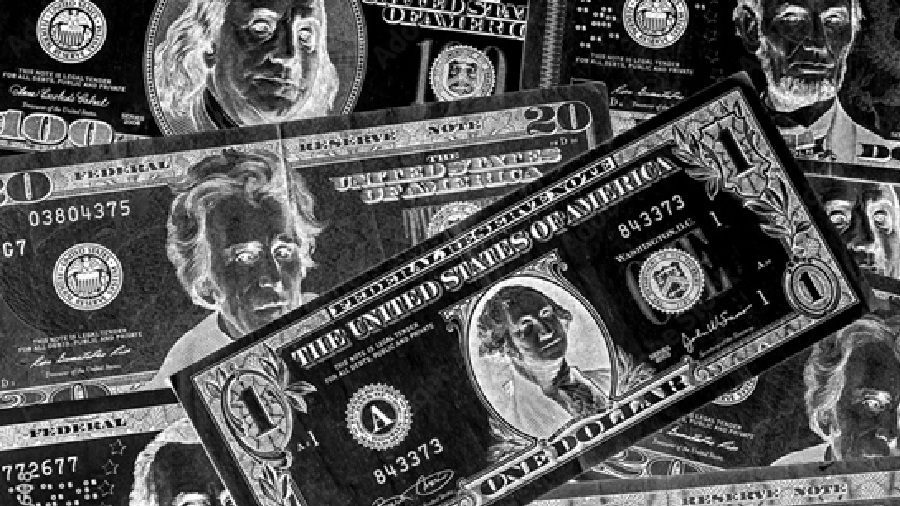The role of dark money in US policymaking—how hidden funds shape elections, influence policies, and undermine democracy.
In American politics, black money plays a decisive role—buying influence, silencing opposition, and shaping laws behind the scenes. From Congress to the White House, undisclosed political funding dictates who wins power and who gets left behind.
Here, everything is bought and sold—even the president and members of Congress, both the House of Representatives and the Senate. Any billionaire or influential interest group can “buy” a senator to protect their interests. This purchase could be for a full Senate term (six years) or a two-year term in the House.
Not only that, but even a White House presidential candidate can be bought to ensure they don’t issue a decision or sign a law that harms the interests of the corporation or group of companies that have handed them “seven-figure checks.”
This is the reality of “political money” or “campaign contributions” in U.S. elections, the preliminary stage of which took place back in 2024 on March 5, known as “Super Tuesday,” when Republicans and Democrats entered the first round of electoral contests across 13 states. This day was also crucial in determining the presidential nominees for the November 5 election. On that day, not only the “new resident of the White House” was chosen, but one-third of the 100-member Senate and all 438 House representatives were also elected.
What Is Dark Money in US Policymaking?
There is a huge role played by dark money in US policymaking—buying influence, silencing opposition, and shaping laws behind the scenes. From Congress to the White House, undisclosed political funding dictates who wins power and who gets left behind.
Undisclosed funds are known as dark money, which includes contributions whose origins American voters are unaware of, or whose true intent behind supporting a particular candidate remains hidden.
In this system, there’s an unwritten “electoral rule”: the party or candidate who raises the most money wins. That’s why both Democrats and Republicans compete fiercely to amass the largest amount of “political money” allowed under U.S. law.
However, both parties—especially the Democrats—avoid disclosing how they obtain these funds because dark money, while legal, appears unethical to voters. Statistics show that the Democratic Party has secured a larger share of dark money so far.
What Is Dark Money?
How legitimate is it compared to other forms of political money in U.S. elections? And to what extent does it influence the decisions of a U.S. president once they enter the White House?
The Most Expensive Election in History
Estimates suggest that the November 5 elections—for president, Congress (both House and Senate), and state governors—were the most expensive in U.S. history, not just because of the deep political divide between Republicans and Democrats, but also due to the stark differences in their economic agendas.
While Republicans focused on supporting so-called “industrial states,” bringing back companies from China and Mexico, and backing oil and gas exploration, Democrats prioritized free trade agreements and a green economy. In this battle, business leaders and donors on both sides feared their interests if the opposing side wins.
Although the U.S. Constitution sets no cap on campaign donations, the average Senate race shouldn’t exceed $80 million, and a House race shouldn’t go beyond $3 million. Yet, candidates from both parties routinely spend far more.
In the 2020 elections, the two parties spent a staggering $14 billion—$6.6 billion on the presidential race (Biden vs. Trump) and $7.4 billion on congressional races. By comparison, the 2016 elections cost $7 billion, 2012 cost $7.1 billion, and 2008 cost $6.3 billion.
Types of Campaign Funding
In the U.S., campaign funds are categorized:
– Donations under $1,000 are seen as reflecting genuine voter intent.
– Larger sums indicate a candidate or party’s strong financial backing.
– Seven-figure donations are “advance payments,” repaid after victory.
Since 1976, the U.S. Supreme Court has allowed dark money—funds that are legal but whose direct source is hidden. These donors (individuals, ethnic/political groups, or corporations) funnel money through nonprofits, obscuring their identity from candidates.
The Growing Influence of Dark Money
Since the 1970s, Democratic leaders have claimed they don’t rely on dark money—yet 2020 data proves otherwise. Democrats raised $1.5 billion in dark money, while Republicans collected $900 million. Fifteen U.S. institutions funneled dark money to Biden’s campaign, compared to eight for Trump.
The trend is alarming: dark money in elections keeps rising. In 2020, a record $2.4 billion in dark money was injected—compared to just $5.2 million in 2006 and $300 million in 2012. This proves that “shadow political players” increasingly dictate decisions, undermining America’s claim to being the “fortress of democracy.”
Official reports estimate around 700 political lobbying groups in Washington, D.C., with 20,000 more operating across all 50 states, influencing politics, economics, and even religion.
Democracy for Sale?
The overwhelming influence of dark money in US policymaking raises a critical question: Is America truly a democracy? Has its democratic system become so devalued that it’s bought and sold by the highest bidder?
To U.S. politicians—who never miss a chance to meddle in other nations’ affairs—one might ask: What democracy and freedom are you talking about?
The answer is simple: The idealized image Washington projects to the world is increasingly contradicted by the dark money that dominates its political life. With each election, its role grows—exposing a system where lobbying interests outweigh national ones.


